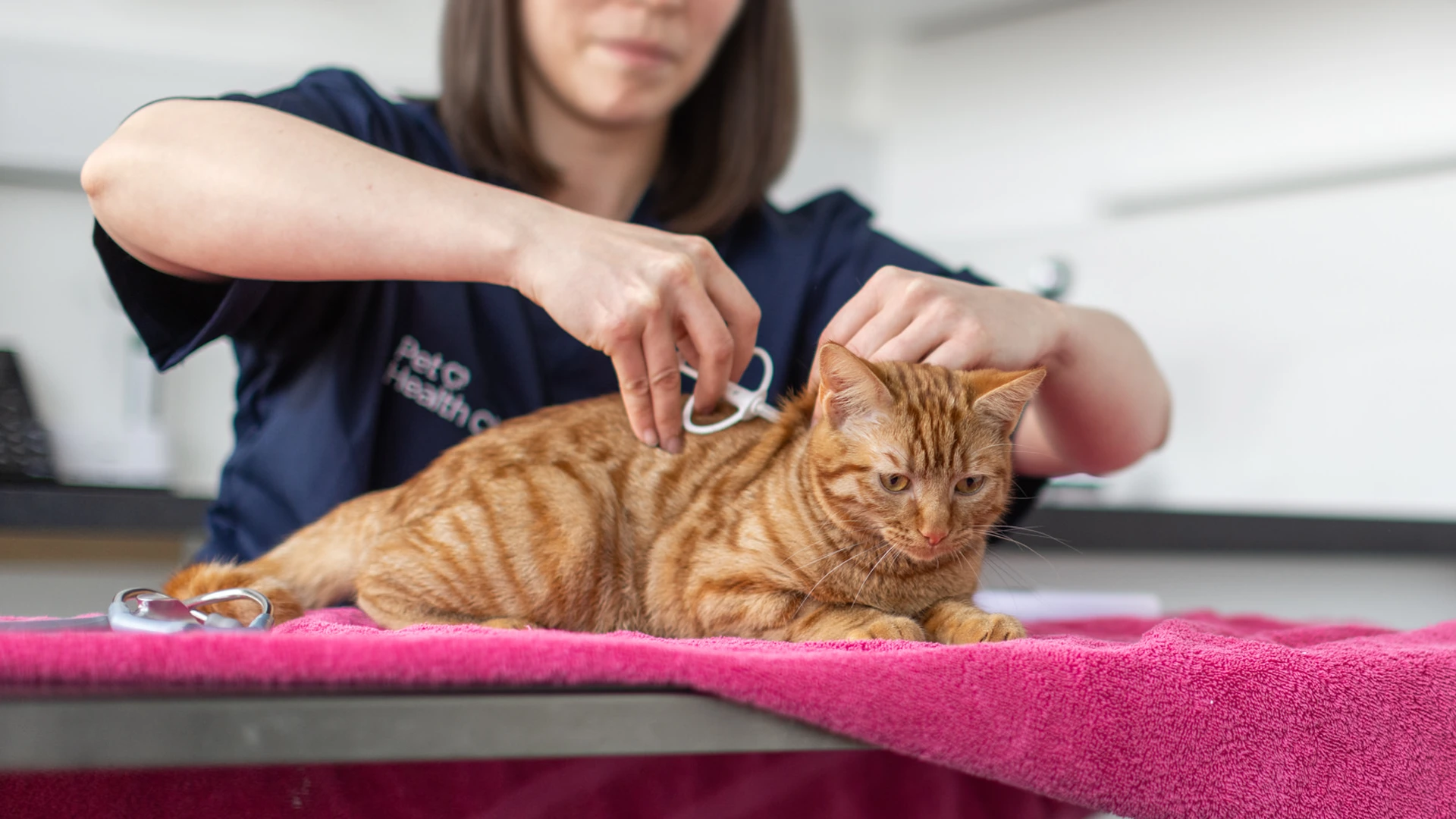Rabbit vaccinations
Myxomatosis
The most dangerous disease for rabbits is myxomatosis, which spreads easily and is almost always fatal if the rabbit is unvaccinated. Myxomatosis vaccines can be given at around six weeks of age and should be followed by annual boosters. There's no treatment for myxomatosis, so if a rabbit catches it, your vet will put them to sleep to prevent suffering.
Myxomatosis can spread rapidly through wild rabbit populations via blood-sucking insects, and these insects can transmit the disease to domestic rabbits living in the same area. Don't take the risk – make sure your rabbit is vaccinated and protected.
RVHD & RVHD-2
We also highly recommend vaccinating your rabbit against both strains of Rabbit Viral Haemorrhagic Disease (RVHD-1 & RVHD-2).
The RVHD virus can live on surfaces and everyday objects, so rabbits often catch this disease through contact with shoes, car tyres, clothing, pet food bowls, etc.
We offer both combined and single vaccines for rabbits. Please get in touch with our team if you have any questions about the best option for your rabbit.

